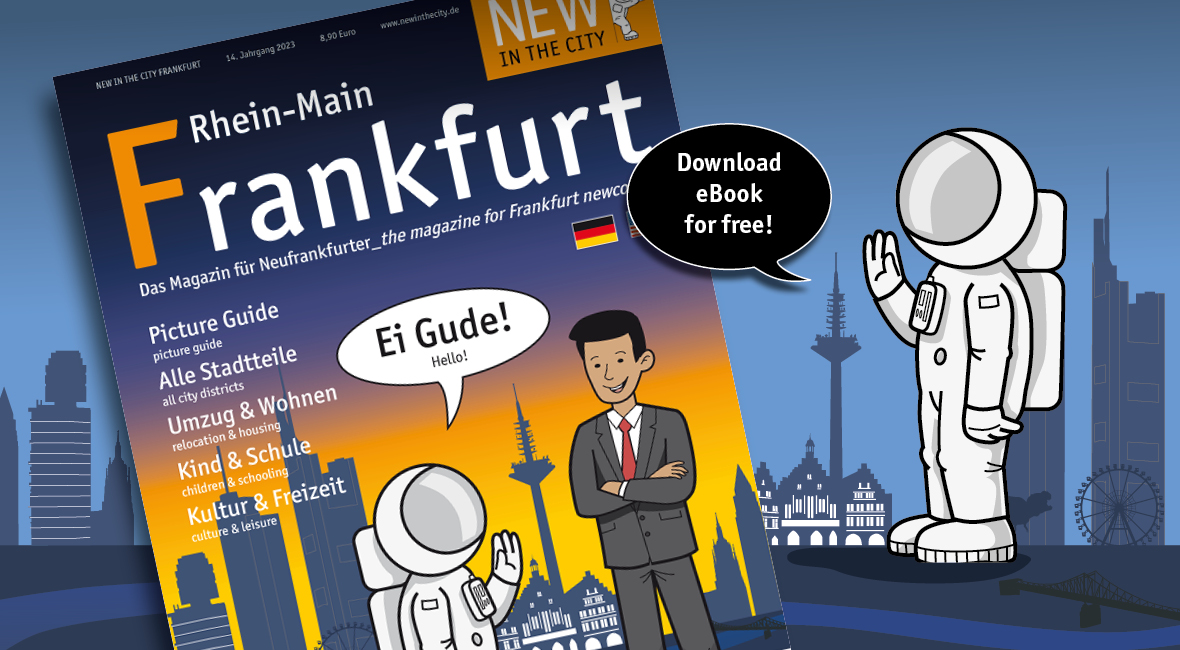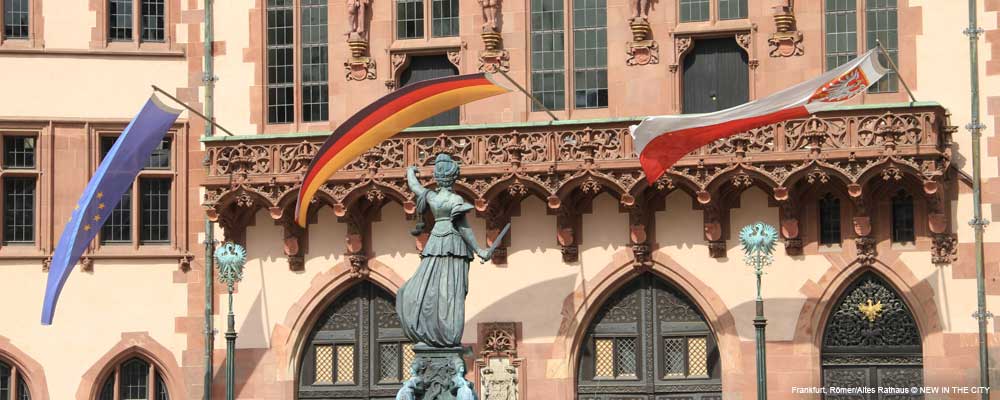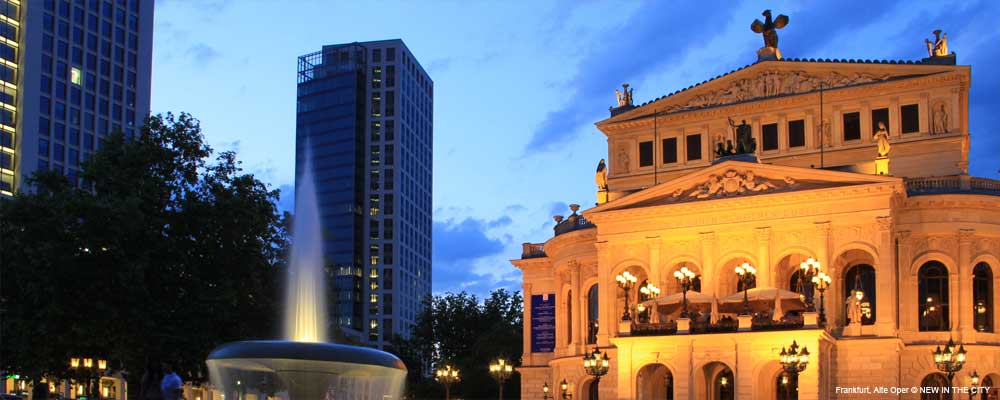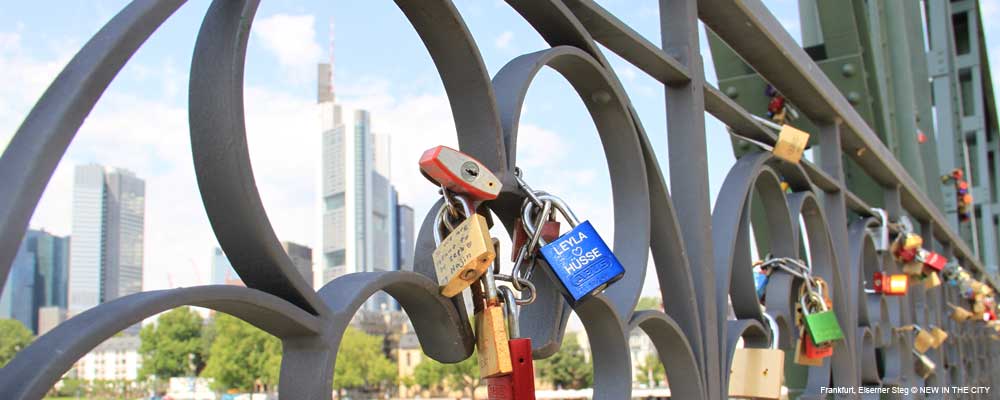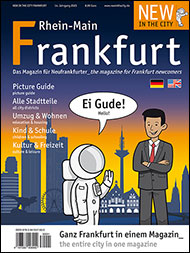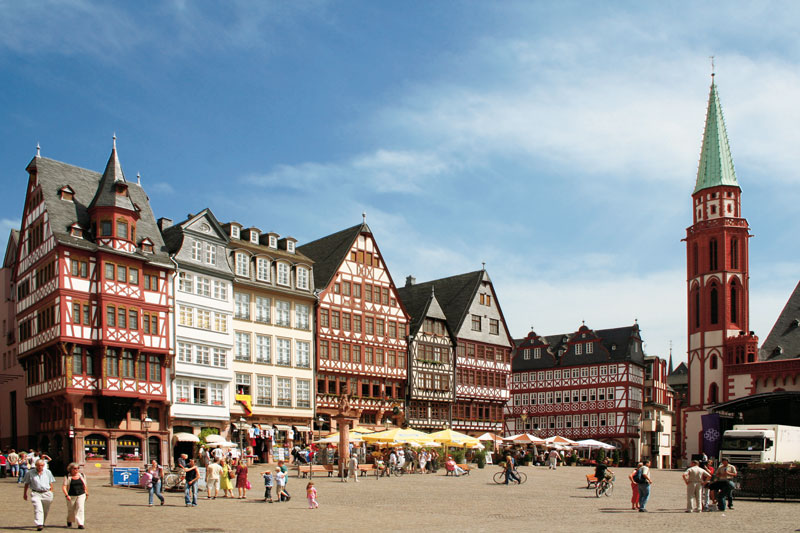
All roads lead to Frankfurt.
Anyone who travels a lot has probably already been through the city, or at least to the airport, main train station or through the autobahn intersection, since Frankfurt’s central location makes it one of Europe's most important hubs.
On a regional level, Frankfurt is also well located in the geographical center of the Rhine-Main region, which has five million residents, over 350 000 of whom commute into the city from outside every day.
Frankfurt is a veritable job machine. The city has been an important trade and congress center for centuries, again due to its central location.
Today approximately 50 trade fairs, including the famous Frankfurt Book Fair, attract up to 1.5 million visitors a year to the city.
But Frankfurt really became big - from an architectural perspective as well – from trading in money.
Frankfurt can thank the banking and financial sectors for its skyline – unique in Germany and Europe – as well as for its nicknames “Bankfurt” and “Mainhattan.”
There are more than 300 credit institutions in Frankfurt and the European Central Bank and the German Federal Reserve Bank have their headquarters in the city.
Frankfurt's securities exchange is also the fourth largest in the world.
But if you closely at Frankfurt, you’ll see this is only half of the true picture. Beyond the skyscrapers, you’ll find that the city suddenly becomes a picturesque village, and that many of its districts, with their historical half-timbered buildings and traditional cider pubs, are on a much more human-scale.
Here, the language is Hessian instead of Business English, the de rigueur drink is cider instead of cocktails, and people eat schnitzel with green sauce instead of sushi.
Far from the brokerage and financial world, Frankfurt citzens relax in their garden allotments or along the idyllic Main riverbank, and at the weekends support the Eintracht Frankfurt football club at the team's stadium or on television.
Given this unique combination of world-class city and small village, of life in the fast lane and the romantic Medieval setting, as well as its relatively small population of 750,000 people, Frankfurt people like to refer to their city as the “world’s smallest metropolis.”
And that’s what makes the residents of this successful city particularly likeable: they’ve kept their sense of humor.




